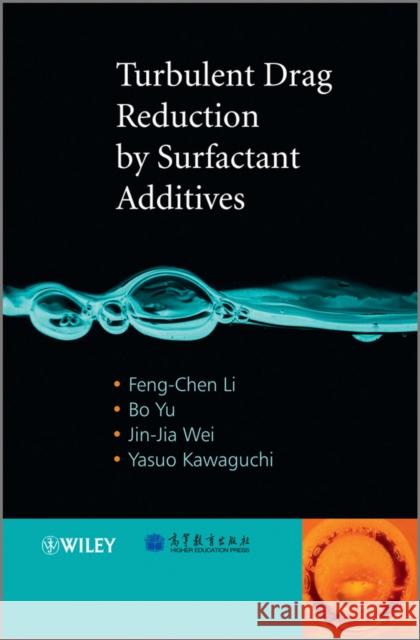Turbulent Drag Reduction by Surfactant Additives » książka
Turbulent Drag Reduction by Surfactant Additives
ISBN-13: 9781118181072 / Angielski / Twarda / 2012 / 272 str.
Turbulent drag reduction by additives has long been a hot research topic. This phenomenon is inherently associated with multifold expertise. Solutions of drag-reducing additives are usually viscoelastic fluids having complicated rheological properties. Exploring the characteristics of drag-reduced turbulent flows calls for uniquely designed experimental and numerical simulation techniques and elaborate theoretical considerations. Pertinently understanding the turbulent drag reduction mechanism necessities mastering the fundamentals of turbulence and establishing a proper relationship between turbulence and the rheological properties induced by additives. Promoting the applications of the drag reduction phenomenon requires the knowledge from different fields such as chemical engineering, mechanical engineering, municipal engineering, and so on. This book gives a thorough elucidation of the turbulence characteristics and rheological behaviors, theories, special techniques and application issues for drag-reducing flows by surfactant additives based on the state-of-the-art of scientific research results through the latest experimental studies, numerical simulations and theoretical analyses. Covers turbulent drag reduction, heat transfer reduction, complex rheology and the real-world applications of drag reductionIntroduces advanced testing techniques, such as PIV, LDA, and their applications in current experiments, illustrated with multiple diagrams and equationsReal-world examples of the topic's increasingly important industrial applications enable readers to implement cost- and energy-saving measuresExplains the tools before presenting the research results, to give readers coverage of the subject from both theoretical and experimental viewpointsConsolidates interdisciplinary information on turbulent drag reduction by additives
"Turbulent Drag Reduction by Surfactant Additives" is geared for researchers, graduate students, and engineers in the fields of Fluid Mechanics, Mechanical Engineering, Turbulence, Chemical Engineering, Municipal Engineering. Researchers and practitioners involved in the fields of Flow Control, Chemistry, Computational Fluid Dynamics, Experimental Fluid Dynamics, and Rheology will also find this book to be a much-needed reference on the topic.











